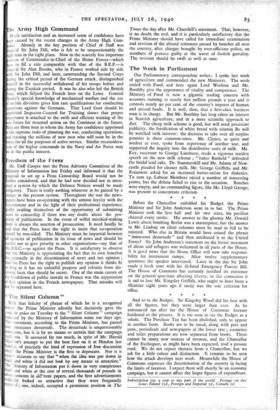he Army High Command Much satisfaction and an increased sense
of confidence have en caused by the recent changes in the Army High Corn- d. Already in the key position of Chief of Staff Was eneral Sir John Dill, who is felt to be unquestionably the ght man in the right place. Now in the scarcely less important osition of Commander-in-Chief of the Home Forces—which ye to fill a role comparable with that of the B.E.F.—is ,eneral Sir Alan Brooke, who in France worked side by side ith Sir John Dill, and later, commanding the Second Corps uring the critical period of the German attack, distinguished imself in the successful withdrawal of his troops before and uring the Dunkirk period. It was he also who led the British orce which helped the French later on the Loire. General rooke's special knowledge of mecbAnised warfare and the use f mobile divisions gives him rare qualifications for conducting perations against the Germans. That Lord Gort should be ppointed Inspector-General for Training shows that proper portance is attached to the swift and efficient training of the ew forces for resumed action on the Continent in the future. ere are three men in whom the Army has confidence appointed 0 the supreme tasks of planning the war, conducting operations, ad training the millions of new men who will soon be in the orces for all the purposes of active service. Similar reconsidera- on of the higher commands in the Navy and Air Force may e in the public interest.






























 Previous page
Previous page